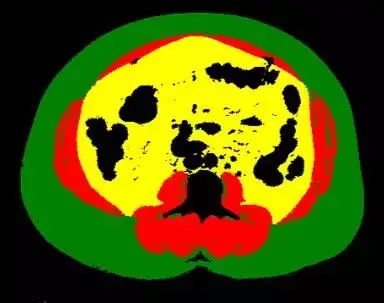- Home
- Medical news & Guidelines
- Anesthesiology
- Cardiology and CTVS
- Critical Care
- Dentistry
- Dermatology
- Diabetes and Endocrinology
- ENT
- Gastroenterology
- Medicine
- Nephrology
- Neurology
- Obstretics-Gynaecology
- Oncology
- Ophthalmology
- Orthopaedics
- Pediatrics-Neonatology
- Psychiatry
- Pulmonology
- Radiology
- Surgery
- Urology
- Laboratory Medicine
- Diet
- Nursing
- Paramedical
- Physiotherapy
- Health news
- Fact Check
- Bone Health Fact Check
- Brain Health Fact Check
- Cancer Related Fact Check
- Child Care Fact Check
- Dental and oral health fact check
- Diabetes and metabolic health fact check
- Diet and Nutrition Fact Check
- Eye and ENT Care Fact Check
- Fitness fact check
- Gut health fact check
- Heart health fact check
- Kidney health fact check
- Medical education fact check
- Men's health fact check
- Respiratory fact check
- Skin and hair care fact check
- Vaccine and Immunization fact check
- Women's health fact check
- AYUSH
- State News
- Andaman and Nicobar Islands
- Andhra Pradesh
- Arunachal Pradesh
- Assam
- Bihar
- Chandigarh
- Chattisgarh
- Dadra and Nagar Haveli
- Daman and Diu
- Delhi
- Goa
- Gujarat
- Haryana
- Himachal Pradesh
- Jammu & Kashmir
- Jharkhand
- Karnataka
- Kerala
- Ladakh
- Lakshadweep
- Madhya Pradesh
- Maharashtra
- Manipur
- Meghalaya
- Mizoram
- Nagaland
- Odisha
- Puducherry
- Punjab
- Rajasthan
- Sikkim
- Tamil Nadu
- Telangana
- Tripura
- Uttar Pradesh
- Uttrakhand
- West Bengal
- Medical Education
- Industry
Abdominal CT by AI algorithm may help analyse abdominal fat, predict CVD risk

CAPTION
Example of body composition analysis of an abdominal CT slice with subcutaneous fat in green, skeletal muscle in red, and visceral fat in yellow.
CREDIT
Radiological Society of North America
According to a recent presentation at the RSNA 2020 virtual meeting, Body composition metrics automatically calculated from abdominal CT exams by an artificial intelligence (AI) algorithm are significantly associated with patient risk for future major cardiovascular events that include heart attack and stroke.
Automated deep learning analysis of abdominal CT images produces a more precise measurement of body composition and predicts major cardiovascular events, such as heart attack and stroke, better than overall weight or body mass index (BMI).
The study cohort was derived from the 33,182 abdominal CT outpatient exams performed on 23,136 patients at Partners Healthcare in Boston in 2012. The researchers identified 12,128 patients who were free of major cardiovascular and cancer diagnoses at the time of imaging. Mean age of the patients was 52 years, and 57% of patients were women.
The researchers selected the L3 CT slice (from the third lumbar spine vertebra) and calculated body composition areas for each patient. Patients were then divided into four quartiles based on the normalized values of subcutaneous fat area, visceral fat area and skeletal muscle area.
In this retrospective study, it was determined which of these 12,128 patients had a myocardial infarction (heart attack) or stroke within 5 years after their index abdominal CT scan. The researchers found 1,560 myocardial infarctions and 938 strokes occurred in this study group.
Statistical analysis demonstrated that visceral fat area was independently associated with future heart attack and stroke. BMI was not associated with heart attack or stroke.
"The group of patients with the highest proportion of visceral fat area were more likely to have a heart attack, even when adjusted for known cardiovascular risk factors," said Dr. Magudia. "The group of patients with the lowest amount of visceral fat area were protected against stroke in the years following the abdominal CT exam."
"These results demonstrate that precise measures of body muscle and fat compartments achieved through CT outperform traditional biomarkers for predicting risk for cardiovascular outcomes," she added.
According to Dr. Magudia, this work demonstrates that fully automated and normalized body composition analysis could now be applied to large-scale research projects.
"This work shows the promise of AI systems to add value to clinical care by extracting new information from existing imaging data," Dr. Magudia said. "The deployment of AI systems would allow radiologists, cardiologists and primary care doctors to provide better care to patients at minimal incremental cost to the health care system."
This paper is the recipient of an RSNA 2020 Trainee Research Prize.
For more information and images, visit RSNA.org/press20.
Dr Kamal Kant Kohli-MBBS, DTCD- a chest specialist with more than 30 years of practice and a flair for writing clinical articles, Dr Kamal Kant Kohli joined Medical Dialogues as a Chief Editor of Medical News. Besides writing articles, as an editor, he proofreads and verifies all the medical content published on Medical Dialogues including those coming from journals, studies,medical conferences,guidelines etc. Email: drkohli@medicaldialogues.in. Contact no. 011-43720751


